-
 Bitcoin
Bitcoin $94,654.9842
0.55% -
 Ethereum
Ethereum $1,807.9729
0.21% -
 Tether USDt
Tether USDt $1.0003
0.02% -
 XRP
XRP $2.3106
6.43% -
 BNB
BNB $606.0732
1.05% -
 Solana
Solana $151.4071
2.66% -
 USDC
USDC $1.0000
0.01% -
 Dogecoin
Dogecoin $0.1811
0.75% -
 Cardano
Cardano $0.7205
3.13% -
 TRON
TRON $0.2459
-2.13% -
 Sui
Sui $3.6990
2.05% -
 Chainlink
Chainlink $14.9854
3.06% -
 Avalanche
Avalanche $22.2859
0.11% -
 Stellar
Stellar $0.2903
2.08% -
 Toncoin
Toncoin $3.3324
0.88% -
 Hedera
Hedera $0.1979
4.66% -
 UNUS SED LEO
UNUS SED LEO $8.9993
-0.09% -
 Shiba Inu
Shiba Inu $0.0...01385
0.53% -
 Bitcoin Cash
Bitcoin Cash $353.9519
-0.23% -
 Polkadot
Polkadot $4.2105
1.72% -
 Litecoin
Litecoin $87.1569
2.21% -
 Hyperliquid
Hyperliquid $18.2304
4.00% -
 Monero
Monero $302.3808
31.70% -
 Dai
Dai $1.0002
0.02% -
 Bitget Token
Bitget Token $4.3319
-1.42% -
 Ethena USDe
Ethena USDe $0.9997
0.02% -
 Pi
Pi $0.6251
-1.71% -
 Pepe
Pepe $0.0...09007
-0.21% -
 Uniswap
Uniswap $5.5447
-3.18% -
 Aptos
Aptos $5.6052
1.92%
How long does it take for SOL transactions to be confirmed?
SOL transactions on Solana typically confirm in 2-5 seconds, influenced by network congestion, fees, and node performance. Use explorers like Solana Explorer to track confirmations.
Apr 21, 2025 at 04:01 am
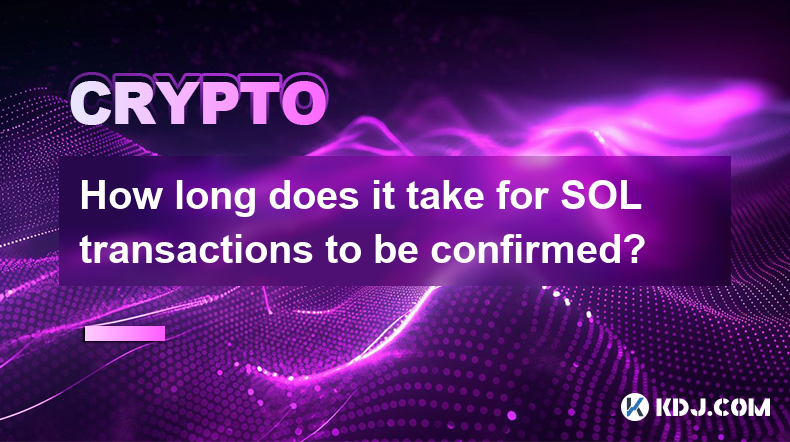
Introduction to SOL Transactions
SOL, the native cryptocurrency of the Solana blockchain, is known for its high throughput and low transaction fees. One of the key metrics that users often consider when dealing with cryptocurrencies is the transaction confirmation time. In the context of Solana, understanding how long it takes for SOL transactions to be confirmed is crucial for both new and experienced users. This article will delve into the specifics of SOL transaction confirmation times, the factors that influence them, and what users can expect when transacting on the Solana network.
Understanding Solana's Consensus Mechanism
Solana employs a unique consensus mechanism called Proof of History (PoH), combined with Tower BFT (Byzantine Fault Tolerance). This combination allows Solana to achieve high transaction speeds and low latency. PoH works by creating a historical record of transactions that can be verified quickly, while Tower BFT ensures that the network reaches a consensus on the order of transactions. These mechanisms contribute significantly to the efficiency and speed of SOL transaction confirmations.
Factors Affecting SOL Transaction Confirmation Times
Several factors can influence the confirmation time of SOL transactions:
- Network Congestion: Like any blockchain, Solana's transaction confirmation times can be affected by the number of transactions being processed at any given time. During periods of high network activity, confirmation times may increase.
- Transaction Fees: Solana uses a fee market where users can set higher fees to prioritize their transactions. Higher fees can lead to faster confirmation times, especially during times of network congestion.
- Node Performance: The performance of the nodes on the Solana network can also impact transaction confirmation times. If nodes are experiencing technical issues, it may take longer for transactions to be processed and confirmed.
Typical SOL Transaction Confirmation Times
Under normal network conditions, SOL transactions are typically confirmed within 2 to 5 seconds. This rapid confirmation time is one of the key attractions of the Solana network for users who require quick transaction processing. However, as mentioned earlier, this time can vary based on network conditions and other factors.
How to Check SOL Transaction Confirmation
To check the confirmation status of a SOL transaction, users can follow these steps:
- Visit a Solana Blockchain Explorer: Websites like Solana Explorer or Solscan allow users to track their transactions in real-time.
- Enter the Transaction ID: Each SOL transaction has a unique ID. Enter this ID into the search bar of the blockchain explorer.
- Check the Confirmation Status: The explorer will display the current status of the transaction, including the number of confirmations it has received. A transaction is considered confirmed once it has been included in a block and validated by the network.
Tips for Faster SOL Transaction Confirmations
To ensure faster SOL transaction confirmations, users can take the following actions:
- Set Higher Transaction Fees: If speed is a priority, setting a higher transaction fee can help your transaction be processed more quickly.
- Monitor Network Conditions: Before initiating a transaction, check the current state of the Solana network. Tools like Solana Beach can provide real-time data on network congestion and performance.
- Use Reliable Wallets: Ensure you are using a reputable and well-maintained wallet that is optimized for the Solana network. Some wallets may have features that help optimize transaction processing.
SOL Transaction Confirmation and Security
While fast confirmation times are beneficial, it's important to understand the security implications. SOL transactions are considered secure once they have received a sufficient number of confirmations. On the Solana network, a transaction is typically considered final after receiving 32 confirmations. This level of confirmation ensures that the transaction is highly unlikely to be reversed or altered.
Frequently Asked Questions
Q: Can SOL transaction confirmation times be predicted accurately?
A: While typical confirmation times can be estimated, exact prediction is challenging due to variables like network congestion and transaction fees. Users can use historical data and real-time network monitoring tools to make educated guesses.
Q: What happens if a SOL transaction is not confirmed?
A: If a SOL transaction is not confirmed within a reasonable timeframe, it may be stuck in the mempool. Users can try resending the transaction with a higher fee or contact the wallet provider for assistance.
Q: Are there any tools to help manage SOL transaction fees for faster confirmations?
A: Yes, some wallets and platforms offer features to automatically adjust transaction fees based on current network conditions. Users can also manually set higher fees to prioritize their transactions.
Q: How does Solana's confirmation time compare to other blockchains?
A: Solana's confirmation times are generally faster than many other blockchains, such as Ethereum, which can take around 15 seconds to a minute for transaction confirmation. Bitcoin's confirmation times are even longer, typically ranging from 10 minutes to an hour.
Disclaimer:info@kdj.com
The information provided is not trading advice. kdj.com does not assume any responsibility for any investments made based on the information provided in this article. Cryptocurrencies are highly volatile and it is highly recommended that you invest with caution after thorough research!
If you believe that the content used on this website infringes your copyright, please contact us immediately (info@kdj.com) and we will delete it promptly.
- Bitcoin (BTC) Price Today: BTC Rose Above the $90000 Mark, Showing a Steady Bullish Trend
- 2025-04-28 15:20:13
- Satoshi Nakamoto Could Be an AI from the Future, Jokes Binance's Changpeng Zhao
- 2025-04-28 15:20:13
- Grayscale’s Bitcoin Trust ETF (GBTC) Continues to Dominate the Revenue Game
- 2025-04-28 15:15:13
- Bitcoin (BTC) Price Held Steady Above the Key Resistance Level at $94,000 This Week as the Recent Rally Stalled
- 2025-04-28 15:15:13
- Shiba Inu (SHIB) Might Remove Another Zero from Its Price If It Proportionally Tracks Bitcoin's Gains to Ark Invest's Target of $2.4 Million
- 2025-04-28 15:10:13
- Bitcoin Holds Above $93K After Impressive Rally Past $95,000, Ethereum Also Gains Ground
- 2025-04-28 15:10:13
Related knowledge
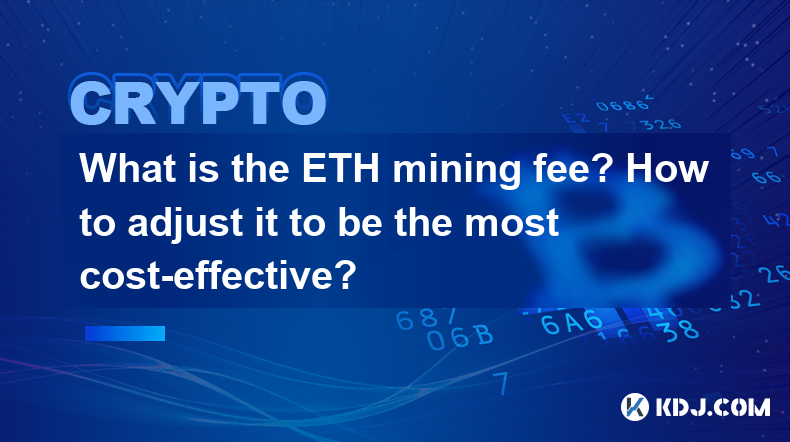
What is the ETH mining fee? How to adjust it to be the most cost-effective?
Apr 28,2025 at 11:56am
The ETH mining fee, also known as the gas fee, is a critical component of the Ethereum network's transaction processing system. This fee is paid by users to miners for including their transactions in the blockchain. Understanding and adjusting this fee can significantly impact the cost-effectiveness of your Ethereum transactions. What is the ETH Mining ...
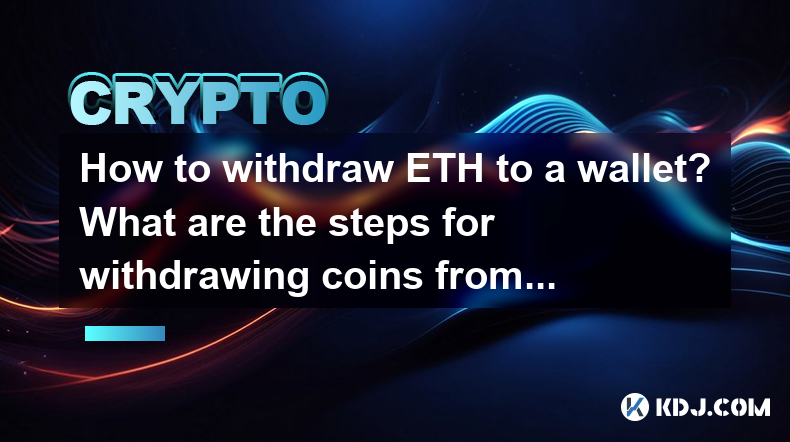
How to withdraw ETH to a wallet? What are the steps for withdrawing coins from an exchange?
Apr 28,2025 at 03:07pm
Withdrawing Ethereum (ETH) to a personal wallet from an exchange is a common task for cryptocurrency users. This process involves several steps to ensure the safe and secure transfer of your digital assets. In this article, we will guide you through the detailed steps required to withdraw ETH to a wallet, as well as provide a general overview of the pro...
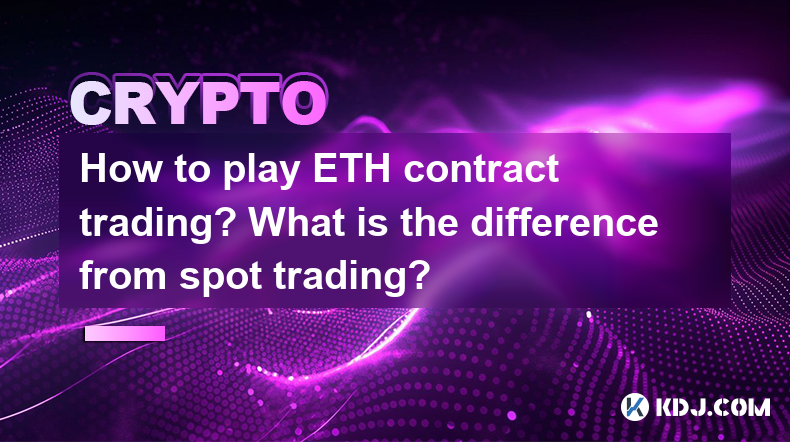
How to play ETH contract trading? What is the difference from spot trading?
Apr 28,2025 at 01:08pm
How to play ETH contract trading? What is the difference from spot trading? Engaging in Ethereum (ETH) contract trading can be an exciting and potentially lucrative venture for those interested in the cryptocurrency market. Unlike spot trading, which involves buying and selling ETH for immediate delivery, contract trading involves trading futures or opt...
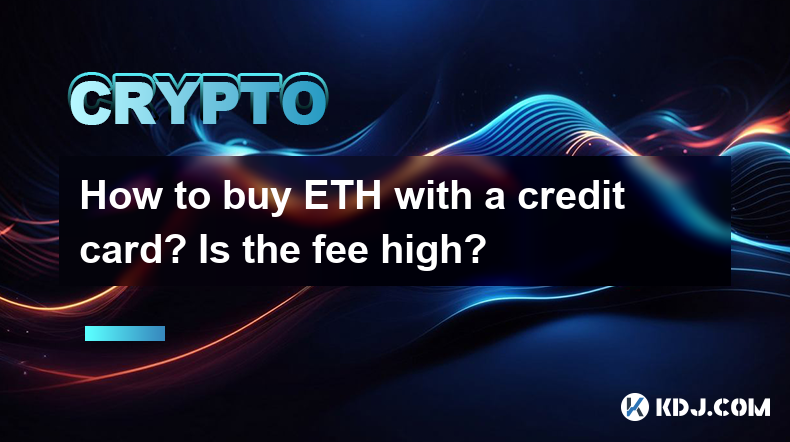
How to buy ETH with a credit card? Is the fee high?
Apr 28,2025 at 12:28pm
How to buy ETH with a credit card? Is the fee high? Buying Ethereum (ETH) with a credit card is a straightforward process that allows you to quickly acquire the cryptocurrency. However, it's important to be aware of the fees involved, as they can be higher compared to other payment methods. In this article, we will walk you through the steps to purchase...
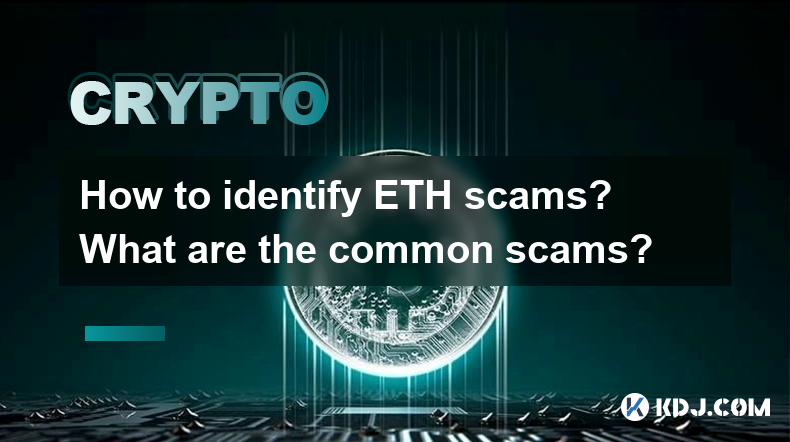
How to identify ETH scams? What are the common scams?
Apr 28,2025 at 12:14pm
Identifying Ethereum (ETH) scams is crucial for anyone involved in the cryptocurrency space. With the rise of digital currencies, the number of scams has also increased, making it essential for investors and users to be vigilant. This article will guide you through the process of identifying ETH scams and highlight the most common types of scams you mig...
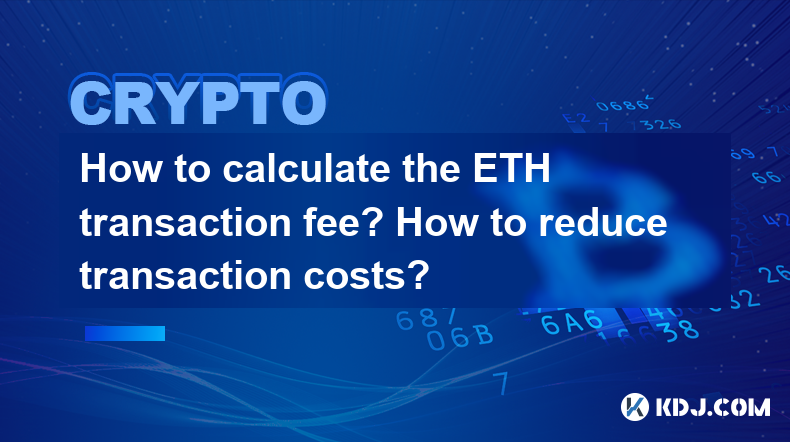
How to calculate the ETH transaction fee? How to reduce transaction costs?
Apr 28,2025 at 12:42pm
Understanding and calculating Ethereum (ETH) transaction fees, as well as finding ways to reduce these costs, are crucial for anyone involved in the cryptocurrency space. Transaction fees on the Ethereum network are influenced by several factors including gas prices, gas limits, and network congestion. In this article, we will delve into the mechanics o...

What is the ETH mining fee? How to adjust it to be the most cost-effective?
Apr 28,2025 at 11:56am
The ETH mining fee, also known as the gas fee, is a critical component of the Ethereum network's transaction processing system. This fee is paid by users to miners for including their transactions in the blockchain. Understanding and adjusting this fee can significantly impact the cost-effectiveness of your Ethereum transactions. What is the ETH Mining ...

How to withdraw ETH to a wallet? What are the steps for withdrawing coins from an exchange?
Apr 28,2025 at 03:07pm
Withdrawing Ethereum (ETH) to a personal wallet from an exchange is a common task for cryptocurrency users. This process involves several steps to ensure the safe and secure transfer of your digital assets. In this article, we will guide you through the detailed steps required to withdraw ETH to a wallet, as well as provide a general overview of the pro...

How to play ETH contract trading? What is the difference from spot trading?
Apr 28,2025 at 01:08pm
How to play ETH contract trading? What is the difference from spot trading? Engaging in Ethereum (ETH) contract trading can be an exciting and potentially lucrative venture for those interested in the cryptocurrency market. Unlike spot trading, which involves buying and selling ETH for immediate delivery, contract trading involves trading futures or opt...

How to buy ETH with a credit card? Is the fee high?
Apr 28,2025 at 12:28pm
How to buy ETH with a credit card? Is the fee high? Buying Ethereum (ETH) with a credit card is a straightforward process that allows you to quickly acquire the cryptocurrency. However, it's important to be aware of the fees involved, as they can be higher compared to other payment methods. In this article, we will walk you through the steps to purchase...

How to identify ETH scams? What are the common scams?
Apr 28,2025 at 12:14pm
Identifying Ethereum (ETH) scams is crucial for anyone involved in the cryptocurrency space. With the rise of digital currencies, the number of scams has also increased, making it essential for investors and users to be vigilant. This article will guide you through the process of identifying ETH scams and highlight the most common types of scams you mig...

How to calculate the ETH transaction fee? How to reduce transaction costs?
Apr 28,2025 at 12:42pm
Understanding and calculating Ethereum (ETH) transaction fees, as well as finding ways to reduce these costs, are crucial for anyone involved in the cryptocurrency space. Transaction fees on the Ethereum network are influenced by several factors including gas prices, gas limits, and network congestion. In this article, we will delve into the mechanics o...
See all articles






















































































